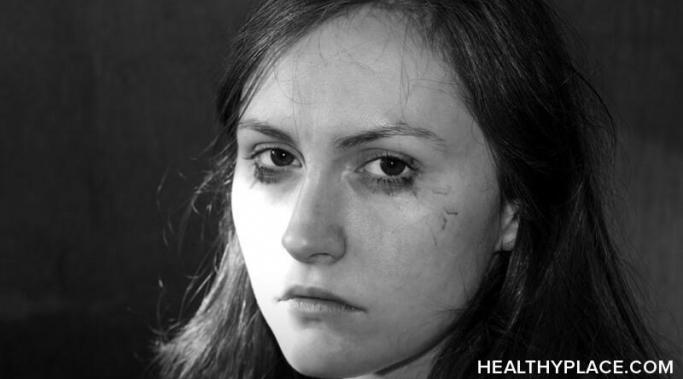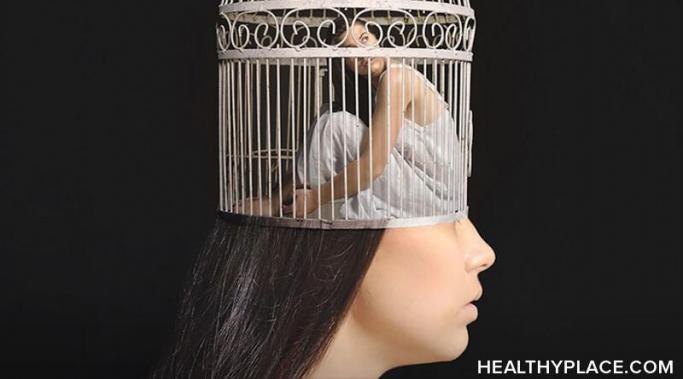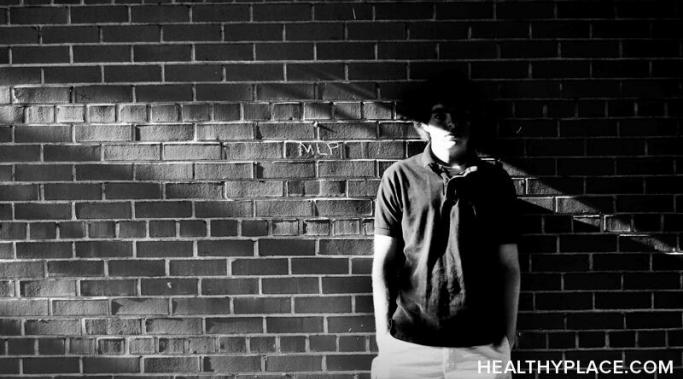Since I was diagnosed with schizophrenia almost 20 years ago and then with schizoaffective disorder 15 years ago, I’ve gone through scores of psychiatric medication changes. They’re never fun but remain necessary as I work with my doctor to keep the dosage as low as possible and schizophrenia symptoms under control. I’m going through a psychiatric medication change right now after a peak of anxiety. You can probably relate to the way it’s affecting my schizophrenic and schizoaffective symptoms.
Creative Schizophrenia
I was diagnosed with schizophrenia in school during 1998. I’ve spent the time since then rebuilding my life while getting re-diagnosed with schizoaffective disorder along the way. I remember that period as a terrible time for me and it doesn’t get any happier as American culture launches a nostalgia kick for the 1990s. I’ll always love Tori Amos’ records, but it’s not a time I want to revisit. Falling into a psychotic episode changed me forever and, although I love my life now, I don’t want to reminisce about the terrified person I became when I was first diagnosed with schizophrenia at school.
Anxiety affects me much more than schizoaffective disorder. You see, schizoaffective disorder is a combination of bipolar disorder and schizophrenia. I have schizoaffective disorder, so I have symptoms of schizophrenia and symptoms of bipolar disorder. Then there’s a bonus--generalized anxiety disorder. Bipolar disorder is often accompanied by anxiety disorders. And it's my anxiety symptoms that affect me the most, even more than schizoaffective disorder.
Behaving badly due to schizophrenia or schizoaffective disorder can cost us relationships, friendships, jobs, degrees, and more. I don’t use my schizoaffective disorder as a free pass to do or say whatever crummy thing I please. Here’s what I’ve learned about myself and my schizoaffective disorder through behaving badly. This is also how I confronted that behavior and turned it around.
A couple of weeks ago, I described my experiences with weight gain caused by atypical antipsychotics used to treat schizophrenia and schizoaffective disorder. Something has changed since then, and probably with some motivation from sharing that article with you. Now I’m trying to lose weight while on schizophrenia medication. I don’t want to go off the antipsychotic I’m on or find a new one--every time I do that I have a bad experience. But here’s how I’m going about the challenge of staying on schizophrenia medication and losing weight.
Boredom – it’s been a continuing struggle since I've started dealing with the effects of schizophrenia and then with schizoaffective disorder. After all, let’s face it, everyday life is not as exciting as a schizoaffective psychotic episode or even a manic episode. That’s not to say I would rather be experiencing acute schizophrenic symptoms than remaining successfully in treatment. I just mean that when you’re on medication for schizophrenia or schizoaffective disorder that is sedating, there are so many stressful activities I can’t handle and life can become a little boring due to the effects of schizoaffective disorder.
Schizophrenia can make life unpredictable in that you never know what side of the bed you’re going to get up on, so to speak. With schizophrenia and schizoaffective disorder, you have good days and bad days. Today got off to a rocky start thanks to the unpredictability of living with schizophrenia.
Weight gain caused by medication is a reality. I have schizoaffective disorder, which is a combination of bipolar disorder and schizophrenia. I take an atypical antipsychotic medication for schizoaffective disorder that causes extreme weight gain. Although many people with schizophrenia or schizoaffective disorder who take medications similar to mine make heroic efforts to fight the weight gain, I’ve come to accept it—although it’s been harder to accept that I need the medication in the first place.
A lot of people with schizophrenia, schizoaffective disorder, and other mental illnesses complain that they don’t like to shower when they're sick. I don’t either—I prefer baths. In my humble opinion, a good hot bath is so much better than a shower, whether or not you have schizophrenia or schizoaffective disorder. Here’s why.
Like a lot of people with schizophrenia or schizoaffective disorder, I make use of the mental illness disability benefit. And I’m really scared of Donald Trump’s proposed budget, which seeks to cut funding for those who are on social security due to a disability. With all his proposed policies, I can find no other conclusion than that Donald Trump wants to punish people for being sick. But it’s not just him. When it comes to mental illnesses such as schizophrenia or schizoaffective disorder, a lot of people don’t understand why someone wouldn’t be able to work. People don't understand why those with mental illness would need the disability benefit.









